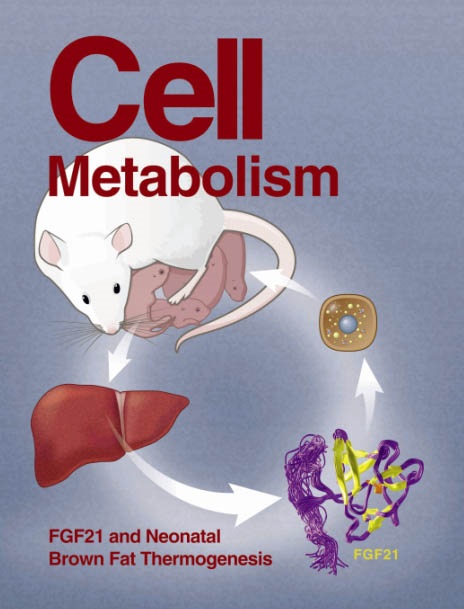饮食时间通过脂肪细胞AMPKα2信号调节脂肪-肌肉串扰来增强运动
IF 30.9
1区 生物学
Q1 CELL BIOLOGY
引用次数: 0
摘要
进食节奏调节运动表现和肌肉能量代谢。然而,调节脂肪细胞功能的机制尚不清楚。在这里,使用多组学分析,包括(磷)蛋白质组学和脂质组学,我们发现日限喂养(DRF)调节小鼠性腺白色脂肪组织(GWAT)中线粒体蛋白质组、中性脂质组和营养感应途径的昼夜节律。脂肪细胞特异性敲低Prkaa2(编码AMPKα2的基因)会损害身体耐力。这种缺陷与酰基辅酶A (CoA)代谢相关基因的节律性改变、GWAT脂质组节律性丧失以及血清代谢物(特别是乳酸和琥珀酸)的昼夜节律重塑有关。我们还发现脂肪细胞Prkaa2在DRF期间调节肌肉时钟基因。值得注意的是,口服AMPK激活剂C29可以增加耐力和肌肉功能,这需要完整的脂肪细胞AMPKα2信号传导。总的来说,我们的工作将脂肪细胞AMPKα2信号定义为脂肪和肌肉之间昼夜代谢协调的关键调节因子,从而提高运动表现。本文章由计算机程序翻译,如有差异,请以英文原文为准。

Dietary timing enhances exercise by modulating fat-muscle crosstalk via adipocyte AMPKα2 signaling
Feeding rhythms regulate exercise performance and muscle energy metabolism. However, the mechanisms regulating adipocyte functions remain unclear. Here, using multi-omics analyses, involving (phospho-)proteomics and lipidomics, we found that day-restricted feeding (DRF) regulates diurnal rhythms of the mitochondrial proteome, neutral lipidome, and nutrient-sensing pathways in mouse gonadal white adipose tissue (GWAT). Adipocyte-specific knockdown of Prkaa2 (the gene encoding AMPKα2) impairs physical endurance. This defect is associated with altered rhythmicity in acyl-coenzyme A (CoA) metabolism-related genes, a loss of rhythmicity in the GWAT lipidome, and circadian remodeling of serum metabolites—in particular, lactate and succinate. We also found that adipocyte Prkaa2 regulates muscle clock genes during DRF. Notably, oral administration of the AMPK activator C29 increases endurance and muscle functions in a time-of-day manner, which requires intact adipocyte AMPKα2 signaling. Collectively, our work defines adipocyte AMPKα2 signaling as a critical regulator of circadian metabolic coordination between fat and muscle, thereby enhancing exercise performance.
求助全文
通过发布文献求助,成功后即可免费获取论文全文。
去求助
来源期刊

Cell metabolism
生物-内分泌学与代谢
CiteScore
48.60
自引率
1.40%
发文量
173
审稿时长
2.5 months
期刊介绍:
Cell Metabolism is a top research journal established in 2005 that focuses on publishing original and impactful papers in the field of metabolic research.It covers a wide range of topics including diabetes, obesity, cardiovascular biology, aging and stress responses, circadian biology, and many others.
Cell Metabolism aims to contribute to the advancement of metabolic research by providing a platform for the publication and dissemination of high-quality research and thought-provoking articles.
 求助内容:
求助内容: 应助结果提醒方式:
应助结果提醒方式:


